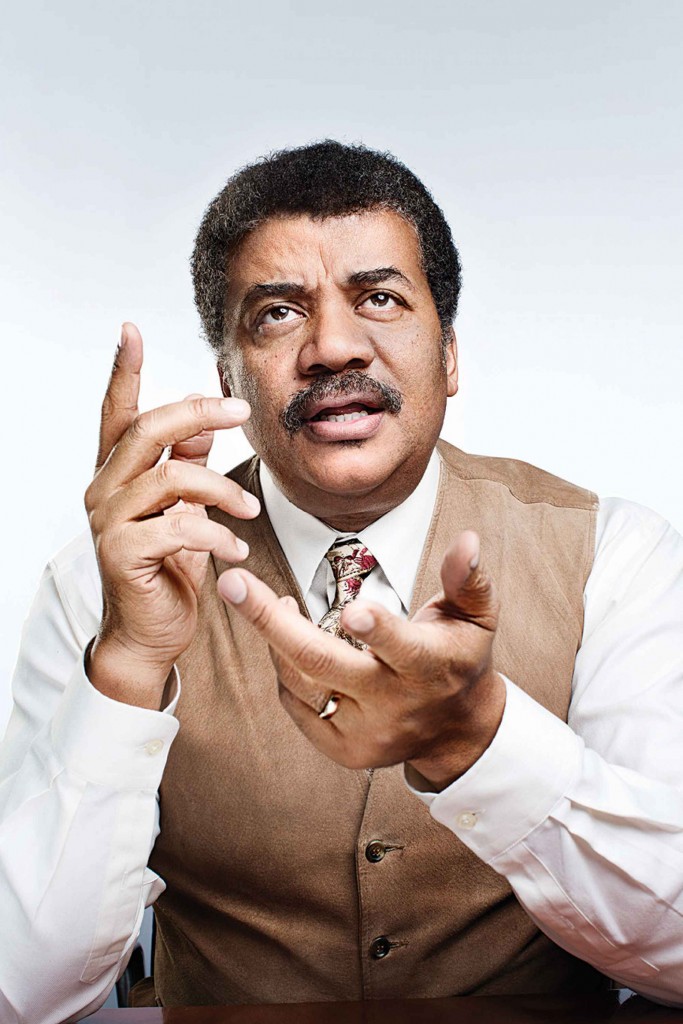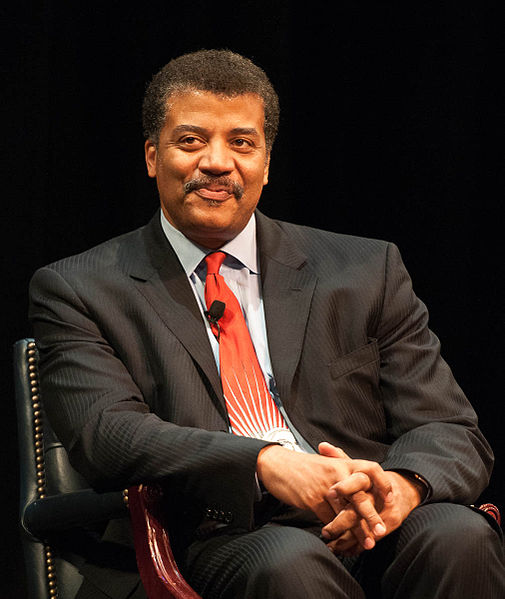Photo by Marius Bugge
Over the last year Neil deGrasse Tyson has become a cultural powerhouse. The astrophysicist and director of the Hayden Planetarium at the American Museum of Natural History not only helped educate the masses about the wonders of science and the Universe through Cosmos, but also tackles a wide range of issues with his radio show StartTalk, and has somehow managed to become a social media icon in the process. Tyson is a whole new breed – scientist, entertainer, gifted communicator, and deep thinker to the core – reaching a new level of mass appeal with his message of humanism, scientific enlightenment, and cosmic exploration.
Most recently, Neil deGrasse has made Twitter headlines as the “Grinch that ruined Star Wars” – and is well known for tweeting scientific fallacies in Star Wars and other sci-fi fan favorites. Here’s a recent tweet from December, 21: “Unashamed of inanity, #TheForceAwakens repeats the Millennium Falcon boast of completing the Kessel Run in ‘under 12 parsecs’.”
As if being a social media rockstar wasn’t enough, how about discussing the relationship between art, science, and creativity with a musical legend? Tyson sat down recently with David Byrne of the Talking Heads. Tyson and Byrne such thought-provoking questions as “whether creativity is hindered or enhanced by restraints, how music and architecture are related, whether machines can be creative, and why studying art makes for better scientists and mathematicians.”
The Harlem Times had the opportunity to sit down with Dr. Tyson at his office above Hayden Planetarium to discuss the science, education, and the role of media as a communication platform for big ideas.
When Tyson talks about the Universe, he has a way of really getting you to listen, by making it clear that it’s important to have this knowledge. Learning about the Universe, and about how life on Earth came to be through stellar events and evolution, can be a kind of self-knowledge, or realization of our own existence in relation to the Universe.
Of course, one of greatest proponents of self-knowledge through study of the Universe was Carl Sagan. A few times during our interview, Tyson spoke warmly about Sagan, the highly influential astronomer and host of the original Cosmos series. Sagan had fist reached out to Tyson, when the young Tyson was deciding where to get his undergraduate degree. While Tyson went on his own path, the fact the Sagan went so far to reach out to him made a lasting impact on his own life and teaching style. When Cosmos first aired in 1980, Tyson was already in grad school and deep into his research. While it didn’t necessarily teach him anything new scientifically speaking, Tyson says that the original series taught him something else.
“The effect that it had on me at the time, was to see and notice that it was possible to bring the Universe to the public in such a way that people would embrace learning, and embrace the power of knowledge of our place in the Universe,” Tyson said. “To learn what our place is in the Universe is deep—it’s emotionally deep, it’s philosophically deep, it’s even spiritually deep—and it’s these kinds of messages, that were put forth in the original Cosmos, that it my judgment made it something that people never forgot.”
I think it’s fair to say that Tyson has had a significant impact on getting the greater public to embrace learning. While Tyson’s style is certainly different from Sagan’s (with way more cheeky humor and cool sarcasm), the two scientists are very similar in their mastery of language and communication, the ability to distill complex ideas into manageable bits, and the ability to deliver this message in a way that connects people and gets them excited about learning. Hats off to you Neil – thanks for showing us around our Universe!


